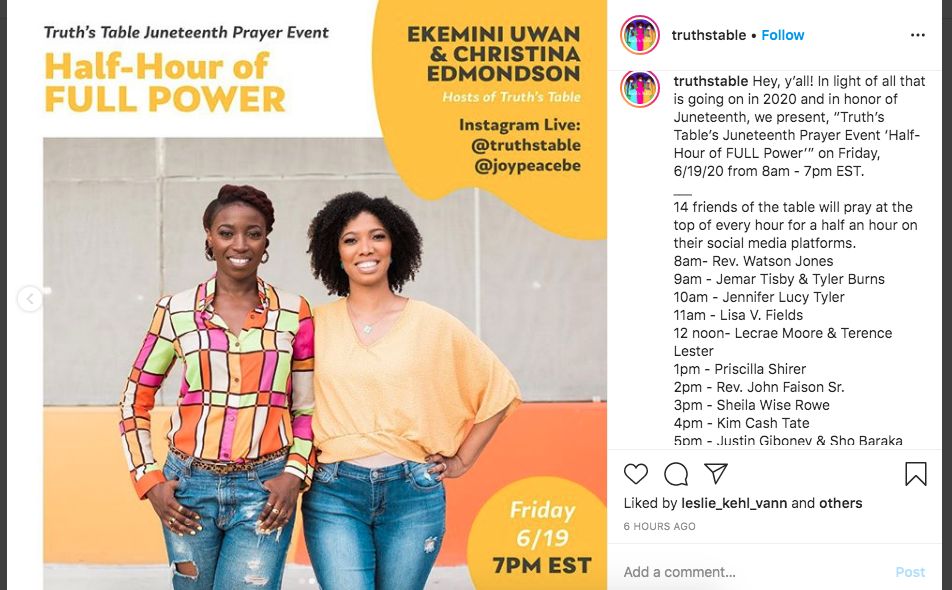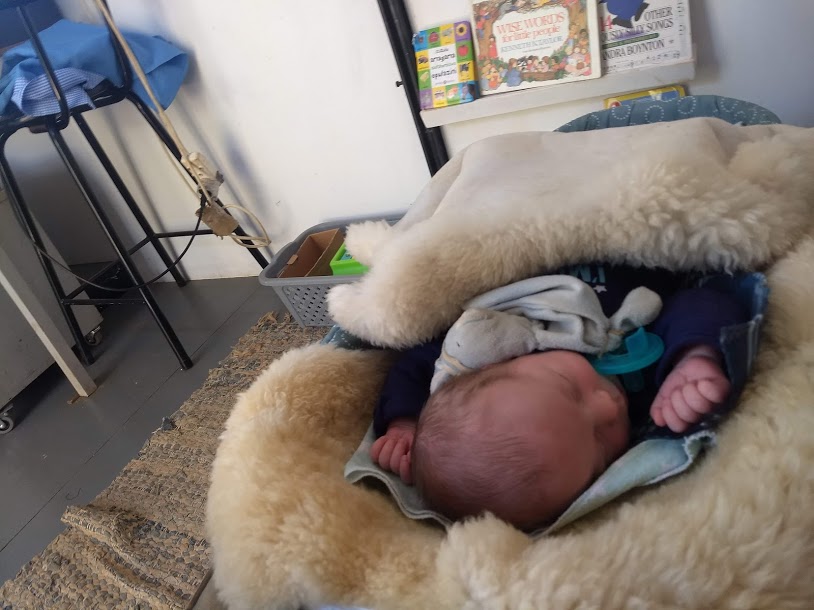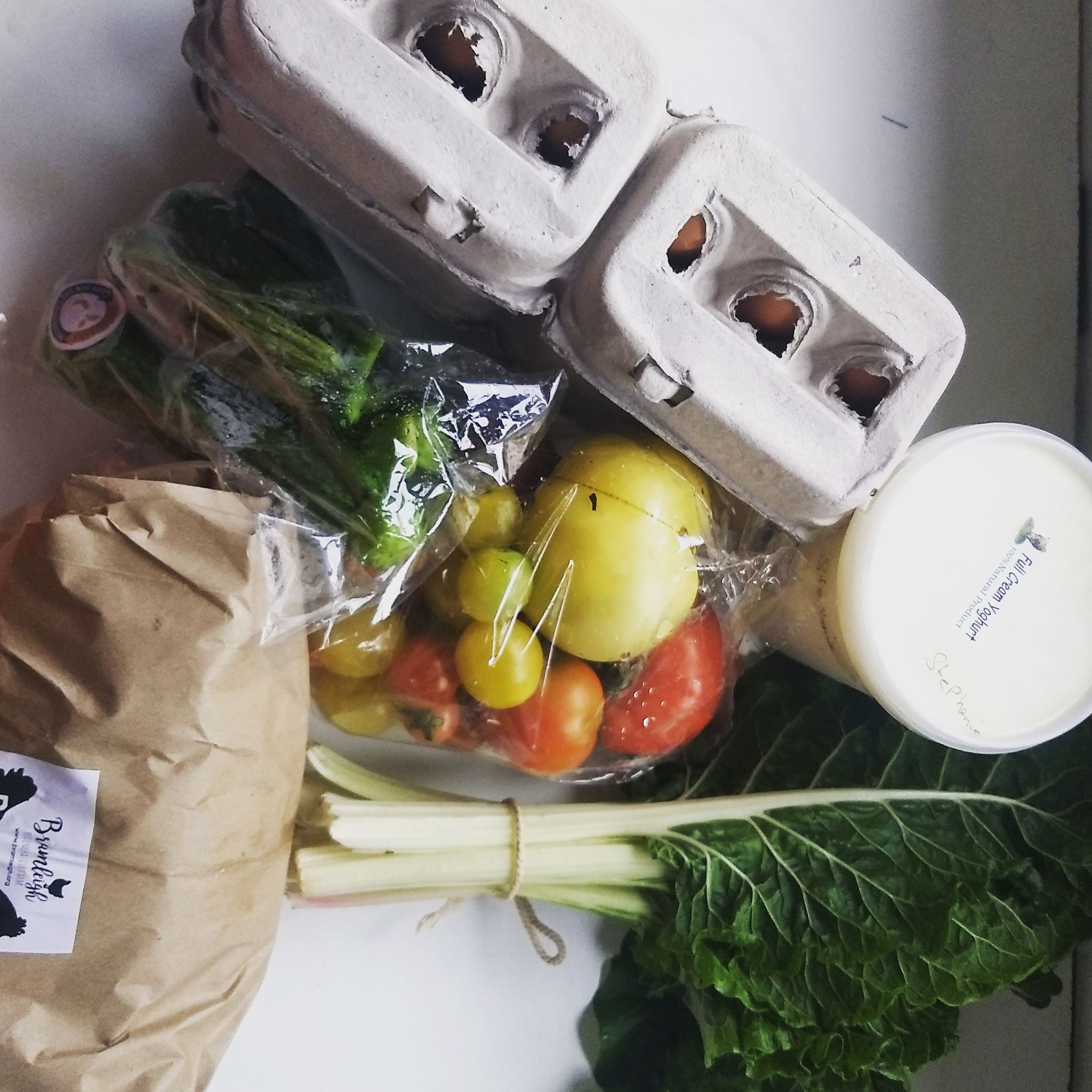It’s been a strange few weeks, and there are many better equipped people to be talking about this! If you don’t have much time or mental space, just stop reading this and go become a Patreon member at First Name Basis or follow Equal Justice Initiative and read their stuff! But writing has always been how I put things together, and maybe it will help someone.
My family is from Texas, my mom actually grew up near Galveston, and I have vague recollections of being told about Juneteenth and why it is important. But living in South Africa, we never celebrated it (although we did celebrate Thanksgiving and the Fourth of July with our American friends).
These past few weeks, we’ve seen statues of confederate generals coming down, and calls to include Juneteenth as a national holiday at the same time that people have also been advocating for an end to police violence and full scale criminal justice reform. The Equal Justice Initiative has been advocating for an American version of Truth and Reconciliation Commission to talk about the history of terror that has been visited on black people in America from enslavement to lynching to incarceration. Meanwhile there is a push towards discussion of reparations at the national governmental level.
On the one hand, taking down statues and making public holidays seems kind of like “window dressing” when compared to abolishing the police or ending mass incarceration. Like, are we going to take down some statues, declare some national holidays and call it all good? Hopefully, hopefully not. If I’m honest, though, there is also a part of me that feels uncomfortable about Juneteenth as a white person. Yes, it’s celebrating the end of enslavement for so many people, but it also highlights the fact that there were enslavers. Explaining to my white three year old why we are having strawberry lemonade and red velvet cake feels way more complicated than explaining why we are having sugar covered sweet potatoes at Thanksgiving (of course, it’s shouldn’t be, but that’s another post).
But then I remind myself, that I’m already doing this. In South Africa, we just celebrated Youth Day. It’s a public holiday- no work, no school. We remember the youth of South Africa in 1976 who protested against the apartheid government for the right to education. They took to the streets, and children were injured. Children were killed. Police violence at its height. It made headlines. It “woke” some people. It was still many years until our first democratic election in 1994. It is in no ways a “happy” day to remember. It wasn’t a memory of a victory. But it was a memory of resistance, and a memory that needed to be mourned.
And so, when our first democratic government had power, one of their tasks, along with the constitution, was to come up with a way to have a shared history for our country. The Truth And Reconciliation commission gets a LOT of flak in South Africa these days for being ineffective. It was ineffective at reparations and convictions of crime. Almost thirty years on, we still have massive economic inequality on racial lines and many feel the TRC was just to make white people feel they had “done something” so they didn’t need to take the next step to restitution.
But, for all its flaws, I think it was pretty effective at helping us come up with a shared narrative for our history. Most of us agree what happened. Eight years after the TRC, I was taught from the South African national syllabus a very robust condemnation of apartheid. I was taught about the human rights violations, about the massacres and deaths, about forced removals and the Bantu Education Act, which denied black people access to quality education. People might argue and complain about the details, or where we go from here, but at least we have a basic agreement on the essentials of what happened. The conversation is in the same universe.
Our government also had the task of taking moments from history that had previously been celebrated, and reworking them into a new narrative.
They erected new statues next to the old colonial ones. Sometimes they removed the old ones, sometimes they just built much, much bigger ones of newer heroes to dwarf the old ones. They built new museums. They created a new national anthem. They re-named streets to be for apartheid activists, rather than colonial or apartheid heroes.
And they gave us new public holidays. Now, as a nation, we remember the women who marched to parliament to protest pass laws on Women’s Day. We remember the youth who marched for education and died on Youth Day. We remember the Sharpville Massacre every year on Human Rights Day. And sure, for some it’s just a day off. But even then, even if I have no traditions, I have to answer the “Why?” question.
“Mommy, why doesn’t Daddy have to work today?”
“It’s Youth Day.”
“What’s Youth Day?”
“Uhh, so remember we were talking about melanin and how some people have more and their skin is more brown? Well, youth day is a day that …. hmm…grown ups with skin like ours were being bad and saying that people with brown skin were not allowed to learn and have books they could read. Is that right?”
“NO!”
“Who made us?”
“God made us.”
“Yes, so that’s why it was very bad the white people were trying to stop people from learning. So the kids had to tell the grown ups they were doing something bad and to stop it. So its’ a day we remember the brave kids who said, “Stop doing those bad things!”
Yes. It is extremely awkward. Someone please tell me a better way to talk about this!!
It’s awkward telling your three year old, “White people oppressed people, and we’re white.” On the other hand — because of the bravery and sacrifice of those youth, my life is much richer and freer. There are heroes in this history that I want my son to learn from. I want him to be the kind of person who stands up to injustice. How’s he going to learn that unless I talk about it? Heck, I even wrote a blog post once about how I wanted more white people in my life to talk about this stuff. Why is it so much harder when it’s my own kid? And why is it easier for me to do with South African history than American history?
For me, I think a tiny part is that I didn’t learn this as a child. I learned about apartheid as a child- it was a fact of life. There were no “good old days” for me. Whereas my American history came through nostalgic children’s books and museums on visits to the States, which did not address a lot of these stories, or treated them as a “special interest group” part of history. American history is the history of AMERICANS. All of us. It’s white supremacy says that Juneteenth is a sideline celebration for some of us- not an integral part of
our history. I need to reject that that lie. So when Jasmine from First Name Basis podcast shared
ways to celebrate Juneteenth with your family, and why you should, I realized: this has to be for us, too. If we’re going to celebrate July 4th all the way over here in South Africa, we can celebrate Juneteenth!
We can make some red velvet cupcakes and talk about the resilience of enslaved people, their joy at their freedom, and the evils of slavery. We can talk about the resistors, black and white. And we can join with those who are asking all of America to do the same.
- Listen to (and if you have kids consider being a patreon of) First Name Basis for ideas on how to talk to your kids about race, culture, and religion. Jasmine’s episode on how to celebrate Juneteenth with your family. Her website also has great book recs in the Juneteenth category. There’s some GOOD FOOD ideas, and cookbook ideas to support black creators.
- The Witness a Black Christian Collective that engages in issues of race and justice from a Biblical perspective is doing a digital celebration across their social media platforms. I have learned so much from these voices.
- Truth’s Table podcast is having a prayer session on social media all day.
- Enslavers broke up black families. Help families find their history by transcribing family advertisements for a data base that is helping people track their family history, as suggested by Jasmine in her podcast. Spend 30 minutes on Juneteenth transcribing one.
- Watch/Read EJI’s Reconstruction Report.
- Find ways to advocate to make Juneteenth a national holiday.



 Perhaps the strangest thing about motherhood, the part no one really told you, is how it takes up your space. How it hems you in.
Perhaps the strangest thing about motherhood, the part no one really told you, is how it takes up your space. How it hems you in.


